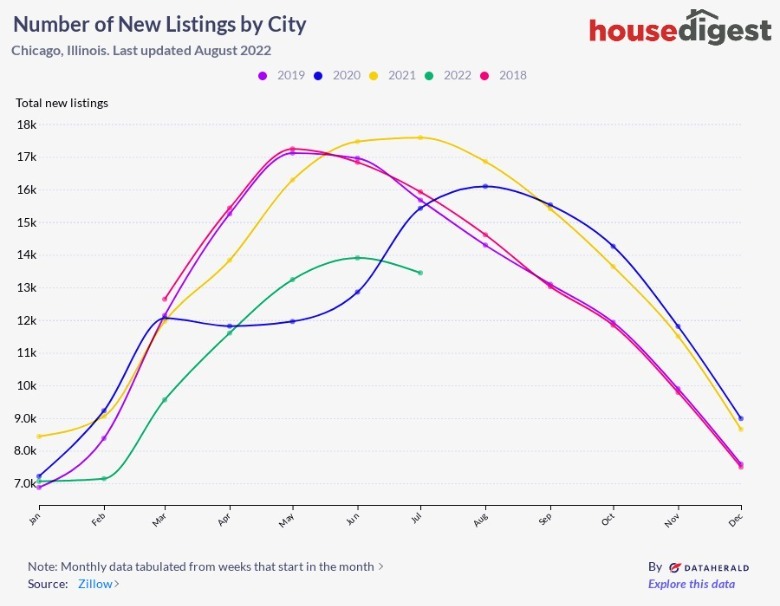The Number Of New Real Estate Listings Has Gone Down Drastically In Chicago – House Digest
The number of new real estate listings in Chicago has seen a dramatic decrease in the year 2022, according to data from Zillow, coming off some lucrative years for the housing market there. The harsh winters of the Windy City make it a relatively seasonal real estate market, which can be seriously impacted by cold weather, according to Investopedia. This explains the pattern of fewer listings during the winter and peak activity during the summer.
As you can see from the graph below, listings during the first seven months of 2022 are off to a sluggish start, with the winter lull lasting past February. Things have not picked up enough to make up the lost ground, with around 13,450 listings in the anticipated peak month of July 2022 — a number down about 15% from what was standard in recent years.
The last time listings were this sparse in the Chicago real estate market was during the pandemic summer of 2020, but they returned to normal levels that September, and it seemed like the COVID-19 impact on the Chicago real estate market was short-lived. However, we may still be seeing the lingering effects.
All trains still lead to the City by the Lake, and that evergreen popularity, combined with the fact that overall, housing supply is still limited, has caused prices to go up 4.8% between May 2021-2022, per Axios.
There is now less room in the market for Chicago’s increasingly high prices, though, as the wider economic situation takes its toll. Interest rates have been climbing throughout 2022 as the Federal Reserve attempts to control rising inflation, according to The Guardian. This makes borrowing money to buy a home more expensive and complex, compounding the cooling effect on the Chicago housing market.
Still, property prices in Chicago are holding firm for now. One positive aspect of less activity is that it can mean more stability, which isn’t exactly a bad thing when it comes to long-term investments like homeownership. However, as the colder months approach, there’s historical reason to believe that the housing supply will dip further, so expect a competitive market in the coming months.










